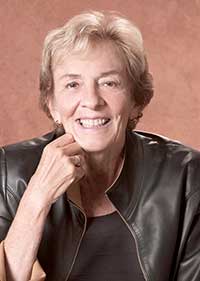 *
*
Poet Dorinda Hale arrived at my table at the Bloc 11 Cafe with a frosted pastry of some kind and a rich, roasted coffee. Hale, who has lived in Somerville since 1974, was here to talk about her first book of poetry released by the Finishing Line Press, Disorientation and the Weather.
Hale is originally from a small town in Vermont, and when she moved to Somerville back in the day she found a neighborhood that was peaceful and quiet, much like her seminal grounds in Vermont.
Hale told me, “Somerville is a good place to be. It is a community I feel very comfortable with.” In terms of gentrification of the city she told me, “It’s great to see all the new babies around town. Gentrification has been responsible for increasing the value of my home. However, it saddens me how everything is so expensive now. I hope the new influx of people will have the same emotional commitment to the community that I experienced decades ago.”

Dorinda Hale
Like many poets, Hale has worked a number of different gigs over the years. In the course of her varied career, she has worked as a manager of a commercial translation project for Kodak, had a stint at a junior college, and worked as a freelance editor. She wound up working steadily in the high tech sector until she was laid off.
After leaving the tech industry she asked herself, “What’s next?” She has been writing and publishing for years. Her work has appeared in such journals as the Atlanta Review, The Wilderness House Literary Review, and elsewhere. So she decided to put together a book, thus this new volume.
I asked Hale about one of her poems in her new collection titled After Grief. She uses a repeated line “swell of light” in this highly structured villanelle, which is is a nineteen-line poem with two repeating rhymes and two refrains. Hale said of this poem, “It reflected how I felt at my brother’s death, and that ‘swell of light’ that repeatedly turns up in the poem is all about the connection with the dead.”
Hale works with both free verse and rhyme. She said, “I write a lot of free verse too, but I like the challenges of rhyme and formal meter.”
I asked Hale, “Why should someone read your collection?” She replied, “Because they will feel better. They will find psychological states that are hard to describe, but are familiar. When confronting pain and expressing pain in the poem, well, it can bring comfort.”
Hale told me she will be speaking at the Harvard Memorial Church. She will answer a question posed by the minister of the said church after he perused her book “What do we owe the world?”‘ And I just bet that Hale has the answer.
AFTER GRIEF
She remains in place, a site
and keeps her body with him
unbroken in a swell of light.
He’s leaned away, though not in flight
hears a cadence meant for him
yet remains in place, a site
bold and burnished, hers despite
the keen constraint, the spell of rhythm.
Unbroken in a swell of light
our dead can sing to us, invite
a waning heart to shelter: an interim
that remains in place, a site
where porous love may dwell. What sleight
of hand unveiled this layered scrim
now unbroken in a swell of light
and let the soak of ties outright
claim her, hold him, allow them
to remain in place—a site
unbroken—in a swell of light?
— Dorinda Hale















Reader Comments